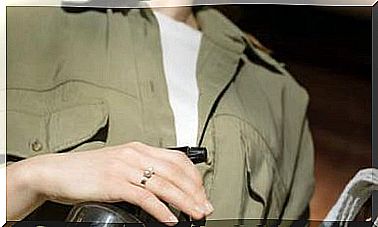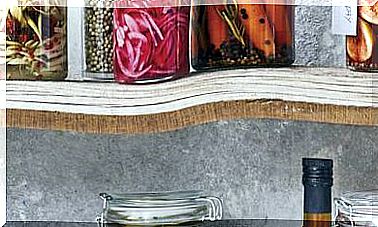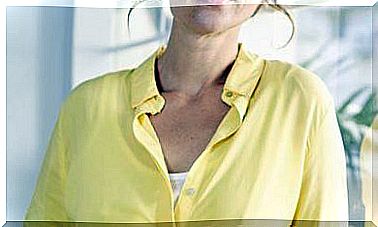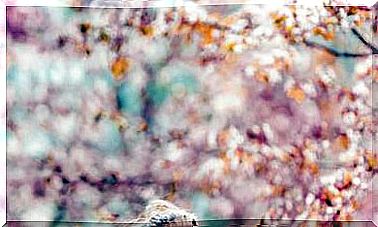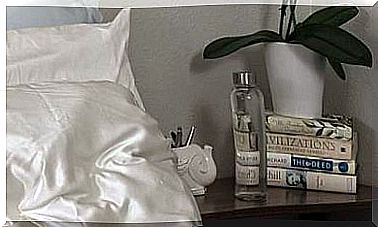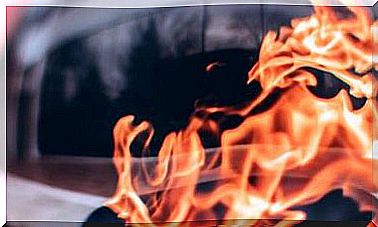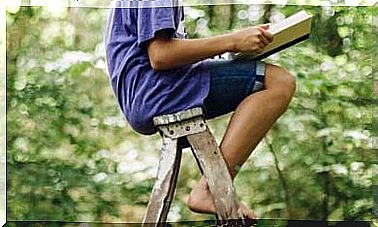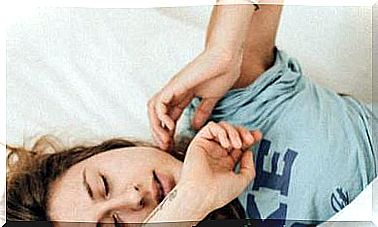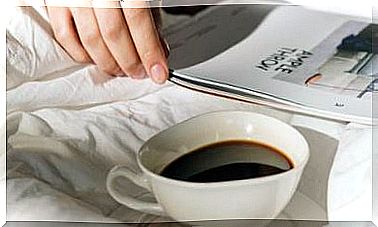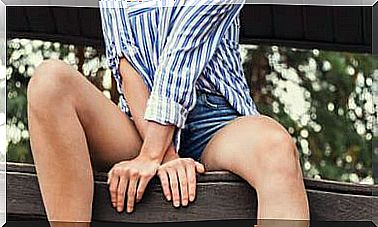“The Disease Is A Circumstance And Does Not Define Who Has It”
Tomás Castillo, psychologist, defends the capacities of people beyond the limitations they may face due to an illness or accident.
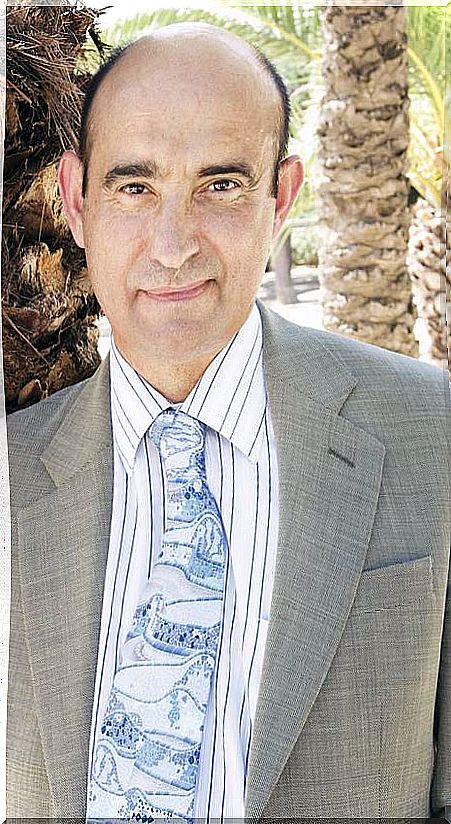
A Tomas Castillo (Torrelavega, 1957) had taught him everything Psychology that people with disabilities could not do. He found it exciting to discover what they could do.
In 1984 he founded the Amica association for people with disabilities with a group of professionals and family members, something unusual at the time.
They began by dedicating themselves to five young people with profound mental deficiencies who had not been taught to go to the bathroom, reach for a spoon or dress themselves.
Today Amica manages a network of laundries in which 500 people with disabilities or chronic diseases work who prepare clothes for Cantabrian hospitals.
Castillo also promotes cooperation projects for people with disabilities who live in poverty, especially in Bolivia.
As a tireless defender of people’s capacities beyond their limitations, he wrote Let me try it and Learning to live with illness: discovering the possibilities that exist in me (both in Ed. CEAC), whose purpose is to reflect on what happens in the life when you have to face the disease.
Learn to live again
–It is surprising, after reading the book and knowing your professional career, that you do not have any disability or chronic disease.
“Well, I haven’t declared it yet.” I’m sure I’m living with one of them and one day it will manifest itself to me. This is the reflection of my book: we live with a disease as if nothing happened until they tell us and it seems that everything falls apart, when in reality it was already in us. I have met many people with chronic diseases, I am the father of a boy with one of them, I am the manager of Amica. I have received many messages that I wanted to convey so that this experience can be of use to other people, even if they are not yet living with the disease.
– Can you learn to face the disease?
Yes, but they don’t teach us. There was a lot of debate about Education for Citizenship but about what is going to affect us the most in life there is no education. This society has dedicated extraordinary resources to medical care and, however, it has worked very little on how a person can cope with their illness once the doctor or professional has fulfilled their role and they remain with themselves. That we do not have the resources to face the disease with integrity seems to me a huge social weakness.
“And what can one do for oneself?”
–Enjoy every moment, worry about the present much more than the future, receive every little detail as a gift from life. That allows “to live”, which is a verb that we never pronounce. “Living” means discovering the possibilities that exist in one, without waiting for others to make us happy. Because we understand that living is enjoying many things, having around us many stimuli, many people, many satisfactions, and happiness springs from being well with oneself.
“Was that what prompted you to found Amica?”
– We thought that the person could always do more. That was the first thesis that we tried to demonstrate: no matter how serious its limitation, human beings have the ability to learn. We dedicated a great effort so that each person had their own program, with skills that we thought each one could learn to handle in daily life. Little by little we progressed. We all have the right to a life project, to have a job, friends, a partner, a family … whatever you want. The fundamental thing was to show that everyone could develop their project.
The importance of giving opportunities
–And how is it achieved?
-Giving opportunities. Thinking in each moment what the person may need to achieve what he wants to do with his life. The first thing is to teach them to make decisions, because many times we do things for them (families sometimes treat them as if they were children). It seems very important to us that you learn to choose and that professionals limit ourselves to accompanying you, trying to put at your service what you need to do what you aspire to do. Amica opened the first day center for people with severe disabilities in Spain.
– They were pioneers. It had to be tough …
–Hard and criticized! Creating a mixed association between family members and professionals broke the tradition that existed in our country of parents associating and hiring professionals. We believed that it was a management model that we had to try because it seemed much more interesting. Even now many people don’t understand it. It was also pioneering to work with all disabilities together: hearing, visual, intellectual …
It seemed to us that the resources we created had to be useful to all people. Another thing is that, as each human being is different, we will make a program for each one. But we did not group people by syndromes. Each being is different. An illness or disability is a circumstance, not what characterizes the person who has it. And this is what has been misunderstood and criticized many times. But it has given us great results, which is what it is worth.
“Each being is different. An illness is a circumstance but not what characterizes the person who has it.”
–Today, so many years later, what has changed?
– We are achieving spectacular achievements. Monthly children to whom as a psychologist I made a forecast of their possible evolution, over the years they have long surpassed those forecasts. By giving opportunities to the person, it is discovered what the nature of each person gives of himself. And that breaks a lot with the classifications that have been traditionally made. Classifying people has done a lot of damage.
-Why?
–It has led us to think that a person with a certain intellectual difficulty is only going to be able to learn such and such, or that he will never reach such another. And yet, with systematic, professional work, support, opportunities, time, patience … much more is achieved. Amica’s experience has shown it. Seeing guys who had a poor prognosis now working or with a driver’s license, some even living away from home, is an enormous satisfaction. When they ask me why I dedicate myself to this, I answer that because the satisfactions it produces are not comparable with anything.
– What separates a healthy person from one who is not?
–I am against the classification of people and, in fact, as a consultant that I was of the World Health Organization when the International Classification of Functioning, Disability and Health (ICF) was elaborated, I defended that classifying people it made us lose the fundamental perspective of its uniqueness. We have to classify the phenomena that occur to human beings, which is different.
In the case of illness and health, I believe that no one is completely healthy or completely ill. If I have not been diagnosed with any disease at the moment, does it mean that I am a healthy person? If that qualifies me, I think it’s not good. Because it also makes me think that I take almost no risk. That idea of not taking risks is a fallacy. This is why some people abuse their health so much: because they think they are out of risk. And there, Tierno Galván’s idea of comparing life with a crystal glass is very applicable: you can enjoy it many times but if one day you get lost, oh, you realize how easily it breaks.
– Why is the disease still stigmatized?
-Because it continues to be seen as a disgrace, as if fate turned its back or a divine power withdraws its protection. That is why it is important for us to reflect: suffering from a disease is so natural, so inherent in the very existence of the human being, that if living is not a misfortune, living with a disease is not, because it is part of the very essence of life .
Life always makes its way
– Could life be conceived without disease?
-No. In fact, perhaps you have progressed because you have had to fight them permanently. Our body has an enormous capacity to coexist with the germs that we ingest, breathe, with which we are in contact through the skin … All the complexity of our defensive systems exists because the diseases are there. And they have allowed us to get ahead. This is essential to understand the nature of our existence: life is always capable of making its way, looking for a way out without giving up.
And perhaps that is the alternative way of thinking about things to the culture of misfortune: realizing that, if life is fundamentally an expression of energy, why not let it flow in us? Many people are showing it every day: they suffer from very serious diseases, which we would be horrified to have, and they are able to keep a smile, enjoy moments, have projects and do many things.
“Isn’t that done with a lot of effort, isn’t it a fight?”
–It is inherent to the human being. You just have to let the energy of life be channeled, allow it to flow without suffocating it with our fears and with all that sometimes mythological culture around health. I think optimism is a way to channel that energy. Because life is fundamentally optimism.
– Optimism cures?
–All therapies are based on him. Optimism heals because it channels that positive energy that is in us. I have sometimes seen how it erupted in people on the verge of death, in serious accidents or in a coma. Especially if their relatives have believed in it and have not abandoned them, in the sense of not expecting anything from them. In the medium in which there is faith, there is a belief that the human being can excel, there are many more capacities and possibilities to succeed. I believe that we have to work along that line and hence the idea of the book Learning to Live that we have to create a culture that counteracts all that other culture in which we have been educated and that we live every day.
“Optimism heals because it channels that positive energy that is in us.”
–You always hear “what a shame” in reference to a person with a disease …
–Well, no, it is not a shame. It is something that is part of the risk of living. Because living is risk, we have to assume it. We do not have any insurance, there are no guarantees. On the contrary, we know that we are going to contract diseases and that the body is also permanently generating them, as in the case of cancer.
– And how do we assume that risk with optimism?
– Incorporating it into our existence, understanding that it is part of it. There are people who like risk driving, or doing sports … because the risk of living is an adventure.
From patient to protagonist
– But how do you deal with a disease if you have received an education according to which that is the worst that can happen to you?
– There is a part of the book that I dedicate to this. I have a supposed reader tell me: “All that you say is very good, but now, how do I put it into practice?” I gave that person the name of Protagonist, because the first thing is that we are protagonists of our lives, that we are not “patients” … It is not about suffering from a disease, but about being the protagonist of one’s life having a disease, living with a disease, which is very different!
– How is it different?
–When you suffer from it, it seems as if you could not do more than medicate yourself and what the doctors ask you. When you become the protagonist of your life and you place the disease as a circumstance within it, you continue to lead your life, which is fundamental: you continue working whenever you can, maintaining your social relationships, leading the life you led; you do not lock yourself at home, in your problem, you do not give a thousand turns to your future. You understand that what has happened to you is one of the accidents that can happen in life and that this circumstance will not be the one that dominates your existence. That must be proposed.
-Many people present themselves as sick.
–There is a role of sick person, of course: to tell everyone so that they ask you, be aware of you … Just as there is a role of the protagonist, people who assume that they have to continue making their lives. We must not forget the disease but we must put it in its place. What it means to give it the importance that must be given at all times. From there, a diagnosis offers you the opportunity to review what habits have led you to that situation. It is important to discover what things are aggressive for your body and correct it. We are receiving this information permanently, although we do not pay much attention to it. And illness is an opportunity to pay attention to it.
Autonomy or dependency?
– I imagine that you do not like at all that there is a law called “Dependency”.
“No, I don’t like it at all.” In fact, when I appeared in the Congress of Deputies in 2005, to report on what the White Book was then and on what the future law would be, I was one of the people who asked that it be called the Law for the Promotion of Personal Autonomy . And the law, in fact, is called the Law for the Promotion of Personal Autonomy and Care for People in a Situation of Dependency.
–How symptomatic that we have been left with precisely that last word…
–It is a symptom of how things are still being turned around or how we have not yet managed to turn things around. How we see the negative, the defective, what the person lacks, “disabilities” more than abilities, dependency more than autonomy. Promoting autonomy is ensuring that all people with a greater difficulty than ours can participate in social life.
“Probably many people classified as dependents could do a lot of things for themselves if they were being supported to do so.”
– You who are in contact with them, what do you want, how would you like to be treated?
– One of the issues that worries me is the feeling of loneliness of our elders, linked to abandonment. And possibly this phenomenon will go further. When you have dedicated your whole life to raising a family and you realize that your children measure the time they are with you, you feel lonely, no matter how much you understand that they have to make their lives. That is dramatic.
In the case of younger people with disabilities, they often feel that they have fewer opportunities and, above all, that they have less social consideration. We have to normalize all this, it is very important to talk about these things. You have to create a culture of how to treat people who have some limitation.
– Is that Amica’s challenge for the future?
–This is our dream. Much progress has been made in the world of disability: we have more and better centers, people have made progress, families have lost the fear of their children going out on the streets … We are missing the most difficult subject to pass: that of not see the other as someone else. This is going to take years of work; get to see a person with a limitation and almost see ourselves in the future with a limitation. That is the lesson to be learned: the difficulties that we see in others, if we do not change them, we will also encounter them.
–And how would people with an illness or disability have to change?
– Those who have a serious illness are generally giving us great lessons. Of course, if we manage to make them face what happens to them with optimism, enjoy the present and the possibilities that exist in them, they will have a better quality of life. For those of us who observe them, learning these lessons will prepare us for when we have to live with the disease.
– Tell us about a moment of great satisfaction.
– What satisfies me the most is seeing a young man of 26 or 27 years with some limitation that I have known as a newborn and who is now working, with future projects, enjoying himself. I remember a lot when I told their parents that they could be happy like us if we didn’t put too many obstacles in their way. It was also very exciting to see how Patxi Irigoyen amounted to almost “six thousand” in Chile with two transplanted lungs. He did not reach the summit, he stayed at 200 meters, which seems even more positive to me, because we do not have to be heroes in life, only human beings.
“You are an optimist.”
-Haha. Well, because when I think positive, more things come to mind!
